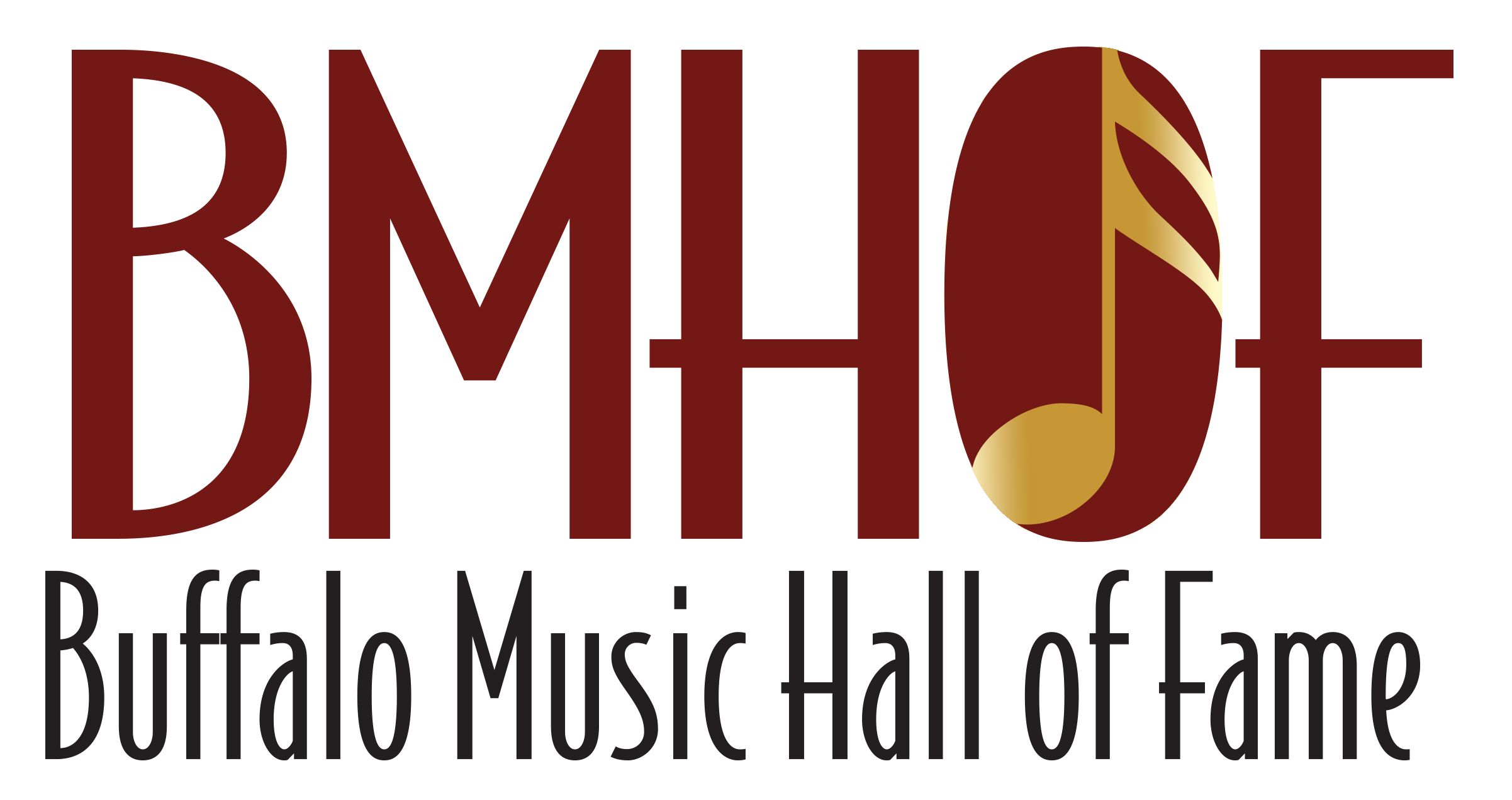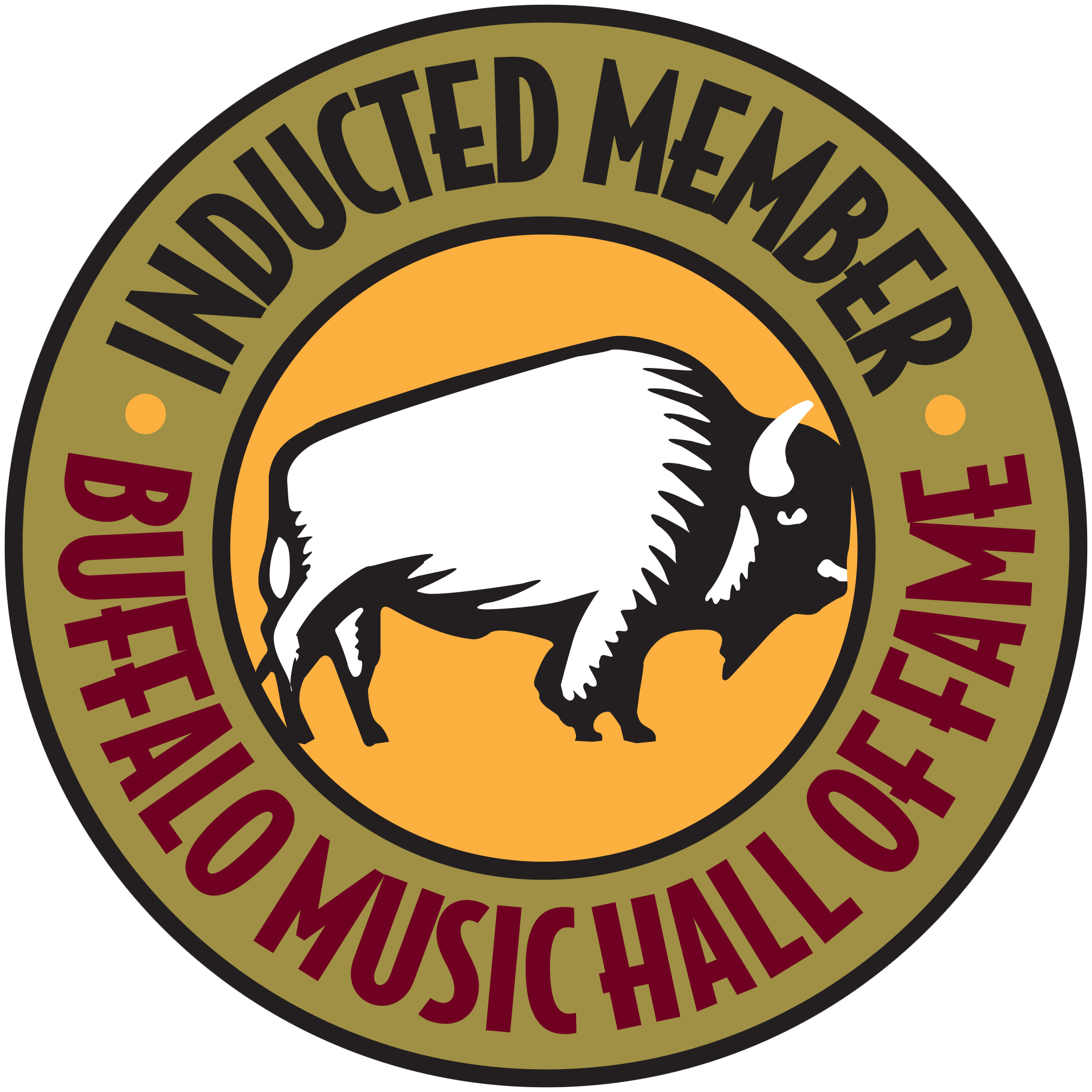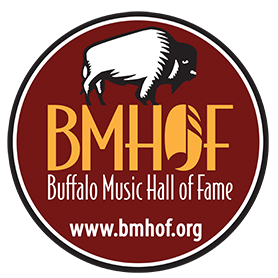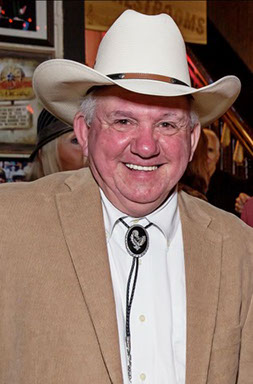





DWANE HALL - BMHOF CLASS OF 2018

Dwane Hall has been in the Buffalo Music Hall of Fame since 1997 as a member of the Stone Country Band, the group he has led since 1974. But his contributions to Buffalo and the Buffalo music scene go far beyond his experience on the bandstand.
You could call Hall the unofficial mayor of Black Rock, the neighborhood at the north end of Buffalo that he has helped revive over the last couple of decades. If you don’t know Dwane, you don’t know Black Rock.
Along the way, his Sportsmens Tavern on Amherst Street has become a nationally recognized venue featuring local and national acts (and sometimes as many as 15 shows a week). Dubbed “the Honkiest Tonkiest Beer Joint in Town,” in 2018, it was recognized as the best venue in the nation by the Ameripolitan Music Awards, which focus on the American roots music scene.
The Sportsmens, meanwhile, has anchored an economic revival in Black Rock, with numerous other businesses opening in what had become a blighted neighborhood enter the 2000s.
Hall was also the driving force behind the creation of the Sportsmens Americana Music Foundation, a non-profit organization dedicated to fostering, promoting and expanding community appreciation for Americana music from Buffalo and Western New York through the production and sponsorship of performance and broadcast events and presentation of seminars and workshops.The group, founded in 2014, has already hosted successful major events such as a show recreating the Band’s “Last Waltz” show, the Silo City festivals and the group’s annual Foundation Festival as well as supporting many smaller-scale educational programs.
Hall also started a recording studio next to the Sportsmens Tavern in 1995, providing a studio home for many of the best Buffalo-area performers in recent years. Not bad for a boy from Black Rock!
Hall grew up on the street behind the Sportsmens Tavern, where he met his future wife, Denise, when he was just 8. Growing up, he played in a family band with his father and seven brothers. He recalls going into honky tonks to play lap steel with his father when he was just 9 or 10 years old.
Hall admits he wasn’t much interested in school as a kid. He said that as a 17-year-old in high school, he would skip out of school to go fishing at the foot of Hertel Avenue and to play guitar with a friend. But that led to a crucial decision after he got in trouble for it.
“I had to do something. They were going to put me in some kind of industrial school or something,” he said. “So I asked my mom and dad to sign me up for the Marine Corps. I spent my 18th birthday at Parris Island.
“I owe the Marine Corps a lot of what I do today. They really showed me what self discipline is and, you know, you keep a good course and just keep pushing after what you're after and you'll eventually get it. So I had that reputation around town that if Dwane said he's going to do something, he's gonna. “So I love the Marine Corps i think they actually saved my life.”
A self-described “grunt,” he was on ship off the shore of Cambodia near the end of the Vietnam War, but didn’t see action.When he returned to civilian life, he became a full-time musician with the Stone Country Band. The group gigged relentlessly, recorded one album in Nashville and did another that had some radio success with its version of “The Curly Shuffle.”
He also started a magazine, North Country Review, in 1976 and was promoter of the Sunshine Festivals in 1979, ’80 and ’81. Hall started at the Sportsmens in the 1980s, first managing the bar and eventually buying it in 1985. But he didn’t convert it to a music venue at first.
It was a corner bar and the only time there was live music was when Stone Country would push the pool table out of the way and set up in a corner. It could be a rough crowd. Hall said it wasn’t unusual for him to leave the stage with his guitar still strapped on, throw some troublemaker out the door and try to return in time to hit the harmonies on the chorus.
Hall said that a conversation with guitarist Bobby Falk started things rolling.
“Bobby said, ‘Dwane, you know we’re probably playing better than we ever have, but band is older. Nobody wants to give us any work,’” said Hall.
So Hall built a stage and started hiring local performers. There was no cover and the performers were guaranteed $50 per person.
“I did that for years, barely keeping the doors open,” he said. “We got more popular. People started liking to come here, and, of course, the bands liked it because I treated them good because I was one of those guys.”
The club held less than a hundred, but Hall starting doing ticketed shows with national acts such as Asleep at the Wheel, Dave Alvin and Poco.
Eventually came some investment and expansion. Hall removed the first-floor ceiling, put seats upstairs and gave the place a look reminiscent of one of his favorite venues, the Belle Starr in Colden. That place, legendary for its country and blues performances, had burned down in 1980.While it may not have been planned out that way, the Sportsmens has been at the heart of a neighborhood revival.
“We've got restaurants moving in and it almost seems like on a weekly basis something is moving in or something being,” Hall said. “Because were were bringing in people who might not otherwise come to the neighborhood, they’re saying, “jeez, see how centrally located this is? It’s really close to the park, the lake, the ramps to get on and off the expressway.
“All the little shops started opening, and then Wegman’s came it. So they say that we anchor one end of ‘The Rock’ and they anchor the other.”To think it all started with the “Honkiest Tonkiest Beer Joint in Town.”
Written by Elmer Ploetz